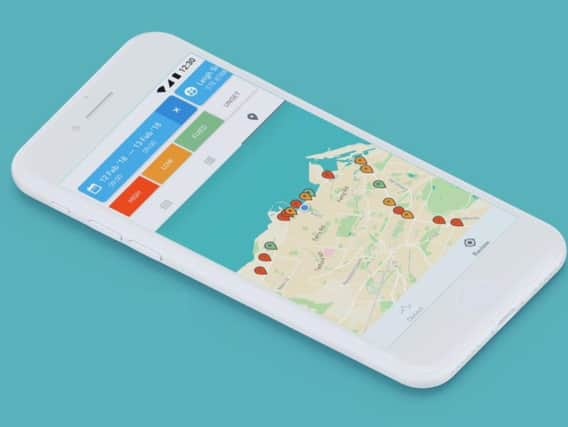App being developed in Edinburgh to predict potholes


It will use technology used in earthquake detection to identify road defects.
Most phones contain an accelerometer - which measures the acceleration of a moving or vibrating body - which could help to identify such "carquakes".
Advertisement
Hide AdAdvertisement
Hide AdIt could speed up preventative repairs because most potholes can only be detected by patrols or reports from drivers.
Testing is due to start next year.
The project is a collaboration between Edinburgh-based Road Intelligence, the Construction Scotland Innovation Centre (CSIC) and the University of Edinburgh.
Edinburgh Parallel Computing Centre was also involved.
Ian Main, of the University of Edinburgh's School of GeoSciences said: "The detection of a signal on a single mobile phone is not enough on its own.
"Myself and Jonathan Singh - a student at the university who took time out from his PhD studies to do the work - helped improve the quality of the seismological input to the system to improve the chances of detection and reduce false alarms, as well as developing a magnitude scale for the ‘carquakes’.
Advertisement
Hide AdAdvertisement
Hide Ad"The next stage was to design a working road defect detection and characterisation app, with Rob Baxter of the Edinburgh Parallel Computing Centre working with Alan Bird and his team at Road Intelligence.
"It is really with the stacking of lots of data and the data analysis tools developed by Road Intelligence that we see a consistent picture of the location and severity of road defects emerge.
“This was a very rewarding experience, with interesting and novel results – we had never worked with data from moving sensors before, or moved so quickly from research to a practical application.
"We expect to be able to use some of the scientific findings in other applications in the construction sector on static structures, for example in earthquake resistant design, as well as to hone the techniques established to date.”
Advertisement
Hide AdAdvertisement
Hide AdRoad Intelligence, part of xDesign, is developing the mobile app for commercial use.
This follows a research and development project between xDesign and the Scottish Government's Transport Scotland agency.
Alan Bird, of Road Intelligence, said: “Our aim is to create apps which will save the public purse significant sums of money by reducing the need for manual inspection of road defects, reducing the amount paid out in pothole damage claims, and providing a ‘live’ road condition report.
"We are now talking to two local authorities who want to use the beta [prototype] product which we expect to be ready early in 2019.
Advertisement
Hide AdAdvertisement
Hide Ad"We hope their experience will allow us to explore the system’s full potential.
Mr Bird said the project could create 25 jobs and generate £5 million in sales over the next five years.
Neil Greig, policy and research director of the IAM RoadSmart motoring group, said: "This sounds fine in theory but it still needs the resources to back it up.
"Potholes often appear in the same place time and time again, and roads are supposedly surveyed regularly, so councils should know where their weak spots are.
"An app like this might raise expectations of a quick fix when what we really need is a long-term plan with guaranteed funding to rebuild worn-out roads."
